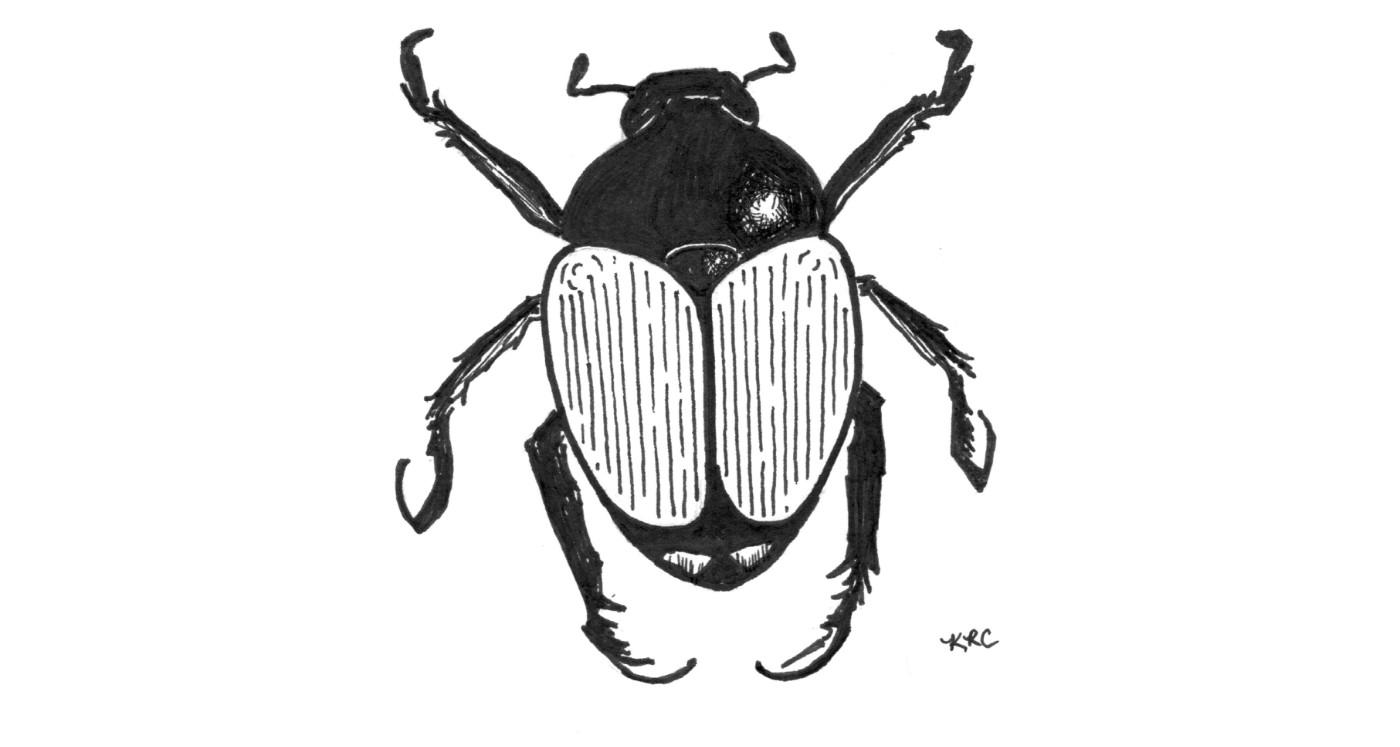Fighting Japanese beetles: A year-round endeavour
October 17, 2025

Credit: Kate Crane
Japanese beetles got you down? In the last couple years this pernicious pest has been wreaking havoc across the province. Our neighbourhood and the rest of HRM have faced considerable damage. It can be quite disheartening to see your favourite fruit tree, grape vine, or rose bush turned into a skeleton, not to mention the damage to your lawn the larval (grub) stage can inflict.
The best approach is multi-faceted and is as follows:
- Treat your lawn and garden in mid-May and mid-Sept., using a beneficial nematode to eliminate the larval stage. These can be preordered from a garden centre like Halifax Seed (where I work) and applied to all the dirt you can reach with your hose via a hose-end sprayer. After applying, you will have to ensure the ground stays moist for 10 days to two weeks.
- Strategically place beetle traps. Traps can be very effective but it must be understood that they use the same pheromones that the beetles produce to attract mates. Traps should be placed as far away as possible from plants/trees you are trying to protect.
- Remove and kill adult beetles. To kill adult beetles, you should NEVER squash them, as this is akin to bursting a water balloon of beetle pheromone which will attract more beetles! Beetles should be knocked into a bowl of soapy water; only a drop is necessary to break surface tension.
- Plant more beetle-friendly plants. The more varieties of plants they eat the better, as this will prevent beetles from focusing on one plant and decimating it.
- Planting species belonging to the Apiaceae family will attract the Winsome Fly, which parasitizes the Japanese beetle. Examples include Queen Anne’s Lace, lovage, carrot and parsnip.
- Finally, planting grass with long roots, like tall fescue, and ideally mixing with micro-clover can deter beetles from laying eggs. This greatly reduces the issue at the source. Fewer eggs = fewer beetles.
Eventually our local birds and other wildlife will begin to realize that Japanese beetles are a good food source, and the numbers of adult beetles will go down; until then we will have to keep working together to battle this invasive insect with all our might.
